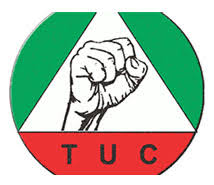MAN backs CBN’s Forex unification

Organised Private Sector (OPS) yesterday said the recent unification of exchange rates by the the Central Bank of Nigeria (CBN) will engendered investment inflow into the real sector of the economy and a laudable initiative that has come at the right time.
The Manufacturer Association of Nigeria (MAN) said it will promote a market friendly rate that can facilitate stable production planning and engender sustainable economic growth
particularly now that the economic outlook is gloomy in light of the impact of the ravaging COVID-19 pandemic that has culminated in uninspiring macroeconomic situations.
President of MAN, Mansur Ahmed however said the manufacturers would need reprieve from the government on the outstanding debt owed to the foreign suppliers based on the old rate, else the survival of the sector will be threatened.
“It is important to recognize the existence of the unavoidable pains that naturally come with the transition from a multiple exchange regime to the domain of a single exchange rate, particularly the burden of dollar denominated loans and offsetting existing credit commitments to foreign suppliers of raw materials. “CBN should as a matter of urgency, put a measure in place to minimize the intensity of the pain by considering outstanding obligations of manufacturers from the second quarter 2019 till date given at N345 to a dollar prior to unification and allow such to be settled at between N330 and N360 per dollar to enable banks to redeem these obligation to foreign suppliers on of manufacturers. Otherwise, many manufacturing factories may close and CBN stimulus packages to the manufacturing sector will suffer a huge setback as cash flow crunch becomes the order of the day.”
Recall that the CBN had at two different occasions “adjusted” (devalued) the value of Naira amid lower oil prices, first from N306 to N360 and now followed it up by another adjustment of July 7, 2020, which moved the rate at the Special Secondary Market Intervention Sales (SMIS) to N381 per dollar.
Ahmed noted that drawing from basic knowledge of the transmission mechanism of exchange rate management and experiences of Cuba and India, the current forex unification agenda will entrench convergence, enhance exchange rate stability, boost investors’ confidence, control rising inflation and promote transparency.
He added that it will also entrench better exchange rate management, eradicate distortions to the barest minimum, eliminate the notorious socially destructive rent seeking activities, halt the incidence of round tripping, ensure better allocation of resources, facilitates income expansion and stimulate the inflow of foreign investment into the economy.
The MAN President advised that there’s need for Nigeria to develop appropriate implementation strategy that will engender a successful transition from the current multiple windows to a single efficient one.
He also mandated the CBN to ensure that the strategy pursue two fundamental objectives; the first, is to limit the short-term pains until efficiency gains materialize by responding swiftly with an inward oriented rescue guideline while the second should seek to boost the pace at which such efficiency gains materialize.
In the same vein, he advised that the apex bank should submit all the instruments of exchange rate determination gradually to the unseen forces of demand and supply as a matter of necessity and completely avoid the temptation of interference in order to fully harvest all the benefits that foreign exchange unification can offer.
He stated, “It is the earnest belief of our Association that the CBN also needs to ensure that the implementation of the critical aspect of the unification process is done as fast as possible, to enable Nigeria take her portion from the meagre capital currently available in the global economy.
“This is not unconnected with the fact that the intensity of the prevailing aggressive competition for resources occasioned by the backlashes of COVID-19 may deny some countries from accessing the much-needed capital inflow, as investors holding scarce resources by default rationally settle for destinations where investment is safe and earnings can be easily repatriated.”




